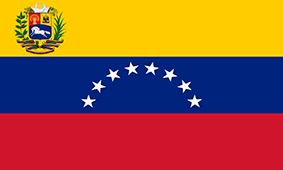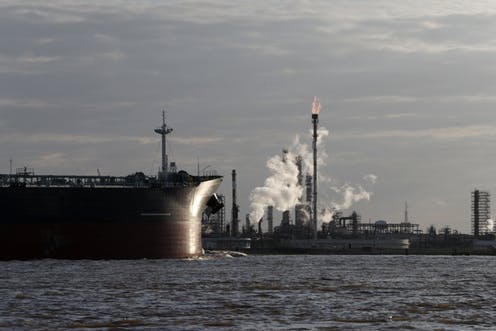
Venezuela shores up oil exports, steadies output

Exports surpassed estimated crude production of roughly 750,000 b/d, reflecting not only imported feedstock but also a persistent backlog of inventory resulting from bottlenecks caused by US oil sanctions and logistical problems at PdV terminals.
About two-thirds of the exports went to Asia, mainly China with 400,000 b/d. Another 230,000 b/d went to India, mostly for Russian state-controlled Rosneft's Nayara refining system.
The balance flowed to PdV's 50pc-owned Nynas refining system in Sweden and Germany, Venezuela's close political ally Cuba, and Spain as part of a swap for gasoline.
The US market, traditionally accounting for the bulk of Venezuela's oil exports, has been mostly closed off by US sanctions since late January. Before the sanctions were imposed on 28 January, US refiners had been absorbing about 500,000 b/d of Venezuelan crude, the largest share of the total.
The exports last month were comprised of Merey, a 16°API blend of heavy and light grades, as well as diluted crude oil (DCO) and some synthetic Hamaca from inventory.
The data lays bare the near-shutdown of PdV's domestic refining system, leaving virtually all supply for export, partly to pay oil-backed loans. Chinese state-owned banks have extended close to $60bn worth of oil-backed loans to Venezuela's government and PdV since 2007, of which about $16bn remain outstanding, a central bank official said. Rosneft is taking some Venezuelan shipments as loan service as well.
Gasoline and diesel have been scarce in most of the country for weeks, even in Caracas where limited supply is traditionally focused.
Although wellhead crude production is only around a fifth of the volume that the Opec country produced in the 1990s, PdV for now appears to have checked the sharp decline over the past few months.
Output has touched bottom and is starting to rebound slowly thanks mainly to the efforts of PdV's foreign partners, including Chevron, Rosneft, Chinese state-owned CNPC and Spain's Repsol, two upstream officials in PdV's eastern and Orinoco divisions said separately.
"The joint ventures are making a difference in spite of the US sanctions," the eastern division official said.
Both officials warned that stabilized production could be short-lived if the US government declines to renew a sanctions waiver for Chevron that expires on 27 July.
Foreign clients delivering products to Venezuela and loading crude now routinely switch off their transponders to avoid identification that could lead to targeted sanctions.
PdV since May has also been routing shipments through shell companies based in Turkey, and reflagging or renaming some tankers to avoid detection and tracking, particularly involving its trade with Cuba.
Signs that the national oil industry has stabilized for the moment coincide with a lull in political tensions, as delegations from the government and the opposition engage in closely watched negotiations. Talks took place in Barbados this week, and more could follow next week.
The US-backed opposition wants President Nicolas Maduro to step down and new presidential elections in nine months. Maduro has so far refused to give way, but it appears the government is starting to groom a young successor, Miranda state governor Hector Rodriguez, to face off against opposition leader Juan Guaido.



Newmont nets $100M payment related Akyem mine sale

First Quantum scores $1B streaming deal with Royal Gold

Caterpillar sees US tariff hit of up to $1.5 billion this year

Gold price rebounds nearly 2% on US payrolls data

Copper price collapses by 20% as US excludes refined metal from tariffs

St Augustine PFS confirms ‘world-class’ potential of Kingking project with $4.2B value

B2Gold gets Mali nod to start underground mining at Fekola

Goldman told clients to go long copper a day before price plunge

Copper price posts second weekly drop after Trump’s tariff surprise

Codelco seeks restart at Chilean copper mine after collapse

US slaps tariffs on 1-kg, 100-oz gold bars: Financial Times

BHP, Vale offer $1.4 billion settlement in UK lawsuit over Brazil dam disaster, FT reports

NextSource soars on Mitsubishi Chemical offtake deal

Copper price slips as unwinding of tariff trade boosts LME stockpiles

SAIL Bhilai Steel relies on Danieli proprietary technology to expand plate mill portfolio to higher steel grades

Alba Discloses its Financial Results for the Second Quarter and H1 of 2025

Australia weighs price floor for critical minerals, boosting rare earth miners

Australia pledges $87M to rescue Trafigura’s Nyrstar smelters in critical minerals push

Fresnillo lifts gold forecast on strong first-half surge

US slaps tariffs on 1-kg, 100-oz gold bars: Financial Times

BHP, Vale offer $1.4 billion settlement in UK lawsuit over Brazil dam disaster, FT reports

NextSource soars on Mitsubishi Chemical offtake deal

Copper price slips as unwinding of tariff trade boosts LME stockpiles

SAIL Bhilai Steel relies on Danieli proprietary technology to expand plate mill portfolio to higher steel grades

Alba Discloses its Financial Results for the Second Quarter and H1 of 2025

Australia weighs price floor for critical minerals, boosting rare earth miners

Australia pledges $87M to rescue Trafigura’s Nyrstar smelters in critical minerals push

Fresnillo lifts gold forecast on strong first-half surge














